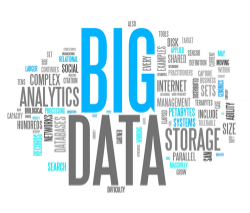SYDNEY, AUSTRALIA – Emerging technology research firm Telsyte has released a new study with eBay detailing how Australians are adopting emerging technologies. Using data from a hundred million technology related searches and transactions conducted each year on eBay, Telsyte were able to determine the dominant sales trends and behavioural choices to tell the story of The Economics of Electronics.
The study The Economics of Electronics is now available for view and download at www.ebaytrendforecast.com.au
Key findings of the study include:
• Australian consumers’ desire for an all-in-one device has also increased, especially as screen sizes on smartphones have grown. In Telsyte’s recent research, nearly half of all tablet users — and two thirds of all Windows tablet users — said they are interested in buying a combined device that had all the features of a smartphone, a tablet and a computer.
• By 2019, Telsyte predicts fewer than one in ten Australian smartphone users will also own an MP3 player — by then, it could well be that MP3s will only still be loved by fitness junkies who don’t want to take their phone into the gym.
• On eBay, sales of MP3 players and digital cameras fell by 13,800 and 8,300 units respectively in 2014 while overall consumer electronics sales were growing strongly. DVD and Blu-ray players grew by just 1% in 2014, a relative decline in comparison to booming growth in the flat screen TV market on eBay.
• Today, Telsyte believes more than one million Australians use smart wristbands to track their steps as they seek a healthier lifestyle. This will increase as more people become aware of the potential benefits and as prices come down. This trend was also seen on eBay, with Australians buying 50,000% more smart wristbands on eBay in December 2014 than they did in January of that year.
• The top five things Australians want to do with smart eyewear are entertainment (including gaming), navigation, news updates, health and fitness and shopping and e-Commerce.
• Accordingly to Telsyte, the average household now has eight Internet-connected devices, up from seven last year, and this number is set to grow to 20 devices by 2019. Today’s connected devices include, on average, almost two computers per household, more than one-and-half Smartphones, a printer, tablet and games console
• Australian shoppers seek lower prices and greater convenience when shopping online. Telsyte research suggests this is due mainly to the desire to get the lowest price possible, with many also citing the convenience of online shopping as a secondary factor.
For further information on the study or media inquiries contact:
Foad Fadaghi
Managing Director
Tel: +612 9235 5851
Twitter: @foadfadaghi
Email: ffadaghi@telsyte.com.au
For interviews or information from eBay please contact:
Jessica Spokes
Pulse Communications
Tel: +612 8281 3864
Email: jessica@pulsecom.com.au
About Telsyte
Telsyte delivers strategic insights and advisory services to businesses that are producing, or are impacted by, disruptive technologies. Telsyte publishes studies into emerging consumer and business markets and provides custom research and advisory services. Our market leading coverage includes mobility, enterprise IT, digital media and telecommunications. Telsyte is a wholly-owned independent business unit of UXC Limited. UXC is an ASX-listed Australian IT services company and the largest Australian-owned ICT consultancy firm with over 2,500 customer organisations in the private and public sectors across Australasia. www.telsyte.com.au
The material in this article is copyright protected and not intended to be altered, copied, distributed or used for any commercial/non commercial purpose, except for news reporting, comment, criticism, teaching or scholarship


